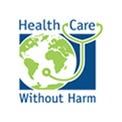Growing equitable food economies in a post-COVID-19 world
Our food future can’t be business as usual
by Lucia Sayre
Perhaps one of the most concerning impacts of COVID-19 is that more than 54 million people in the United States may experience food insecurity in 2020, including a potential 18 million children, according to Feeding America.
The COVID-19 pandemic revealed critical food disparities in our communities.
The COVID-19 pandemic has laid bare the vulnerabilities of our communities and our anchor institutions to major disruptions. Every sector of the economy has been shuttered, severely strained, or outright failed with dire outcomes for the entire country and especially for low-income communities of color. Families are locked down, isolated with limited mobility and access to food and health care; many are jobless or are forced to make tough decisions between getting a paycheck and exposing themselves and their families to the virus.
People in health care and community organizations are rising to the challenge to provide emergency food to those in need, and laying the foundation for long-term recovery. The recovery will not be easy, but we must strive for something more than business as usual.
Our communities and local institutions must be designed to new standards of resilience. This requires a cultural shift in what we value, how we live, and how we relate to each other.
While food insecurity affects every community, Black, Indigenous and people of color are disproportionately impacted as a result of structural disparities. In 2018, food insecurity among Black households was already more than twice of white, non-Hispanic households. The pandemic has only worsened conditions.
The racial inequity that exists in our food system today is not natural or inevitable.
The racial inequity that exists in our food system today is not natural or inevitable. It is the result of systemic decisions over time that have benefitted certain groups over others. Generations of disinvestment and harmful policies have drained many communities of color of basic resources and disconnected them from opportunities to live up to their potential. These disparities reflect a history that includes farmland loss among Black farmers at double the rate among white farmers, discriminatory practices within the USDA Farm Service Agency that barred farmers of color from equitable levels of farm loans, as well as continued disparities in access to knowledge and capital that can help farmers of color transition to more climate-smart and sustainable production practices.
Additionally, labor-intensive agricultural production systems throughout the United States have relied on the most vulnerable workers for decades. Still today around 75% of hired farmworkers in the United States are immigrants, close to a third of whom do not have citizenship documentation. These laborers have some of the lowest wages in the U.S. workforce and face brutal conditions including extended exposure to the elements, sexual harassment and assault, physical and verbal abuse, and toxic exposures to pesticides and farm chemicals. The majority of farmworkers do not have health insurance, and few transition from laborers to farm operators or owners.
While people of color and low- and moderate-income families bear the brunt of these injustices, their lack of connection to opportunity holds all of us back from living up to our values and realizing regional economic potential, further hampering our ability to mitigate and adapt to the consequences of future health, economic and environmental disruptions.
Strong, equitable, regional food systems play a major role in building community health, wealth, and climate resilience. Health care and other institutions redirecting their procurement and investments to sustainable local food businesses and to communities most negatively impacted by the current food system’s inequities, are reinvigorating local food production, processing, and distribution networks while simultaneously reducing the greenhouse gas emissions associated with conventional food production and transportation.
According to the Practice Greenhealth Environmental Excellence Awards, an increasing number of hospitals across our network are hosting programs that support community health and resilience and 79% are prioritizing purchasing from local food producers.
The Anchors in Resilient Communities (ARC) model developed in Northern California and co-coordinated by Health Care Without Harm and Emerald Cities Collaborative, offers a three-tiered strategy for building equitable regional food economies:
- Aggregate and coordinate the collective purchasing power of regional anchor institutions for local and sustainably-grown food
- Rebuild local community-owned manufacturing infrastructure — food sourcing, food processing and packaging, food distribution, and waste management
- Increase contracting opportunities for local food producers and processors of color who have been historically excluded from institutional markets
When we face another pandemic or pandemic-level disruption and we haven’t increased community health, wealth and climate resilience, we will be in the same situation of having to rely on huge emergency relief efforts.
The ARC model showcases what our communities could look like. A vision where the wealth and health across our communities is equitably shared and the systems that support our daily lives — especially food, water, and energy production and delivery — are robust.
Getting there will require a new social contract between anchor institutions and the communities they serve, and a commitment to working together in equitable spaces. When these genuine efforts become standard practice, we can begin to confront centuries of inequity and disinvestment and fortify our communities to be prepared for the disruptions that lie ahead.
Learn more about Anchors in Resilient Communities and how you can take action
Health Care Without Harm
